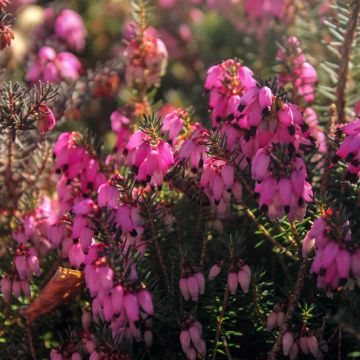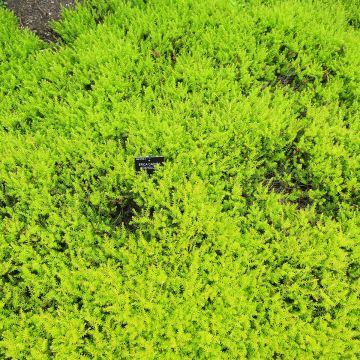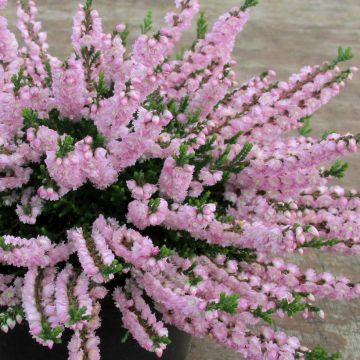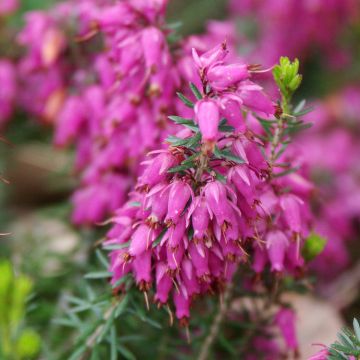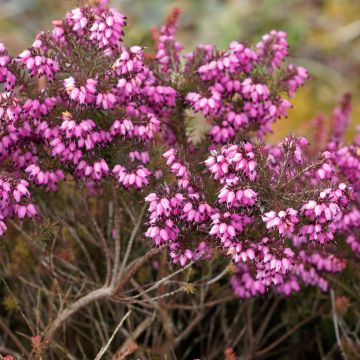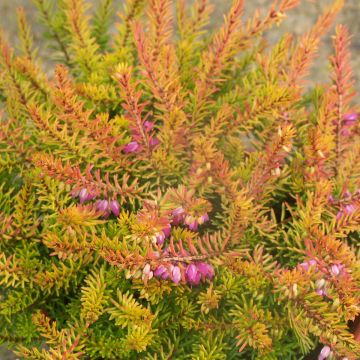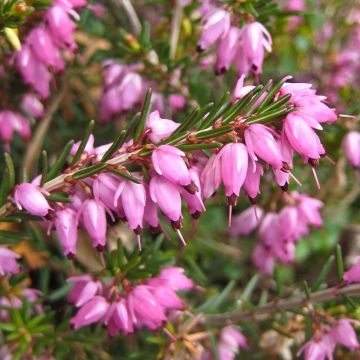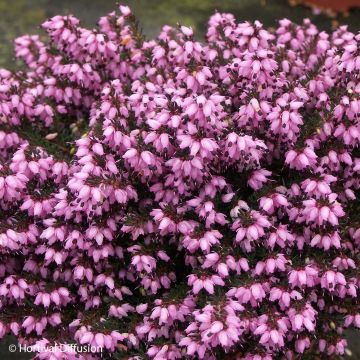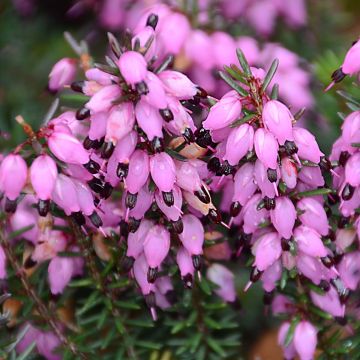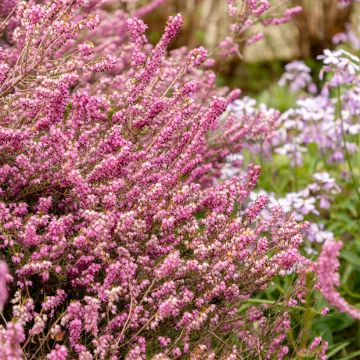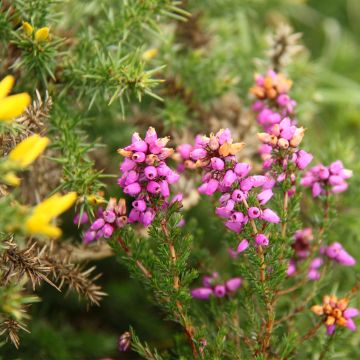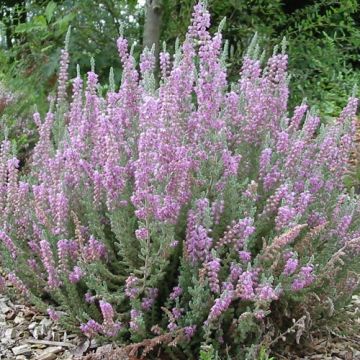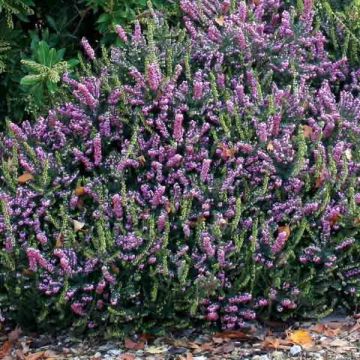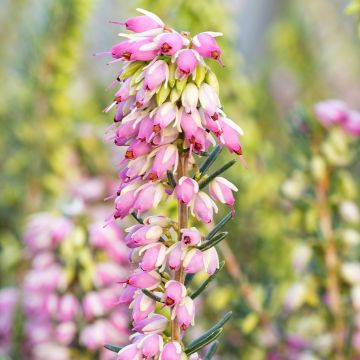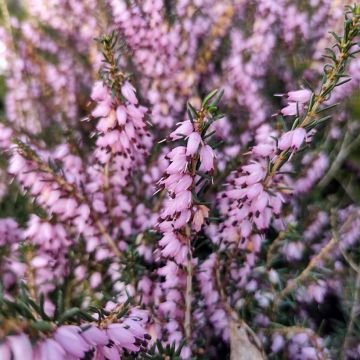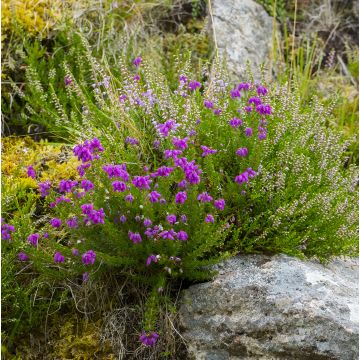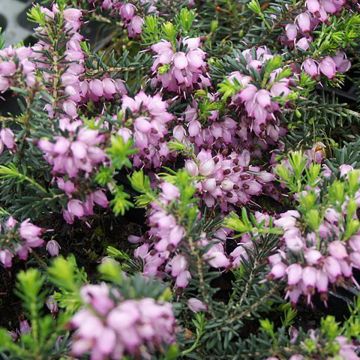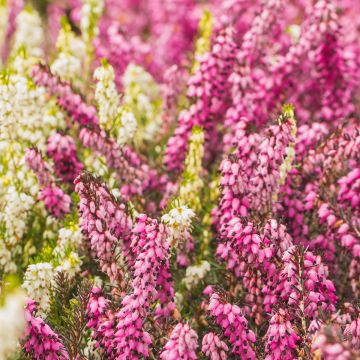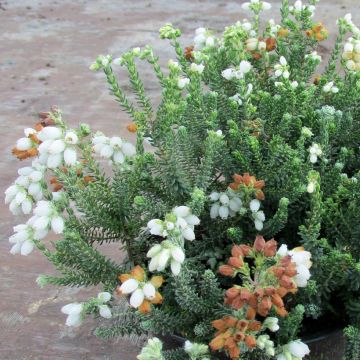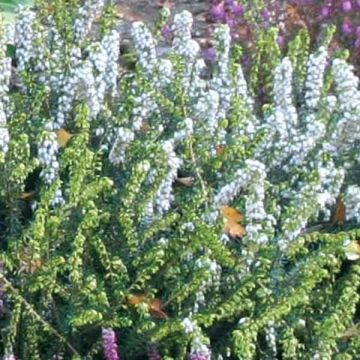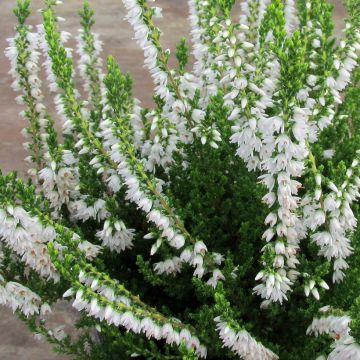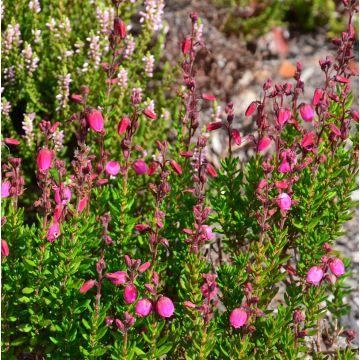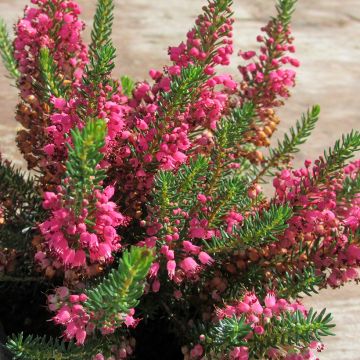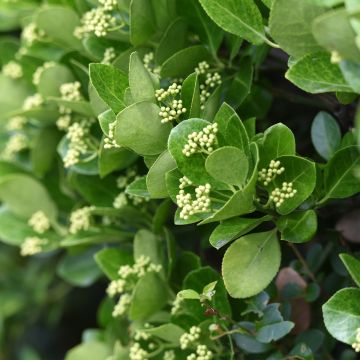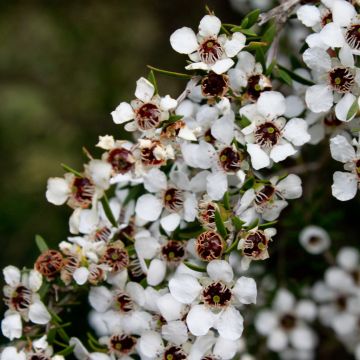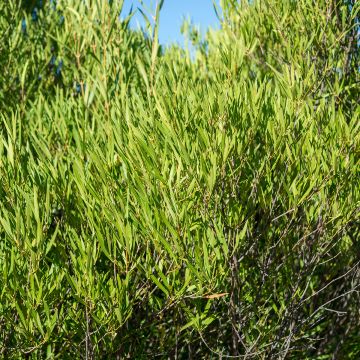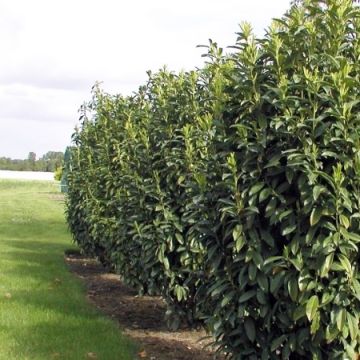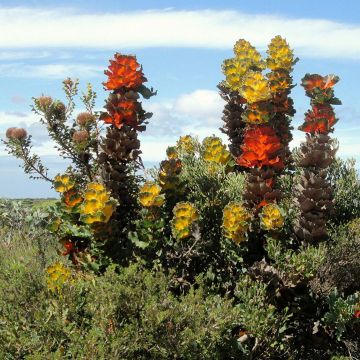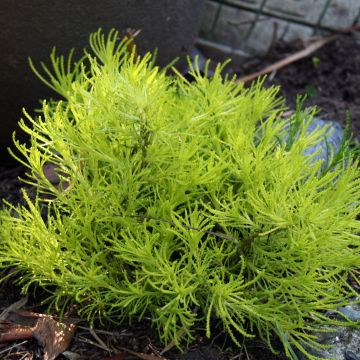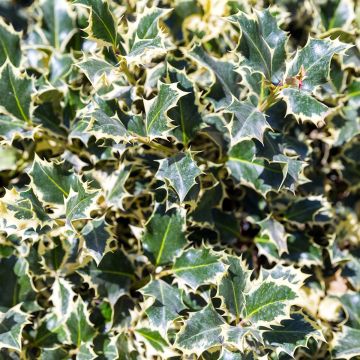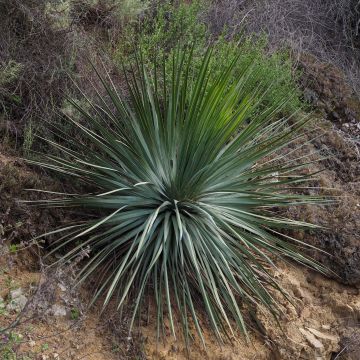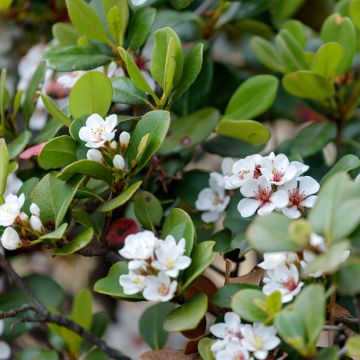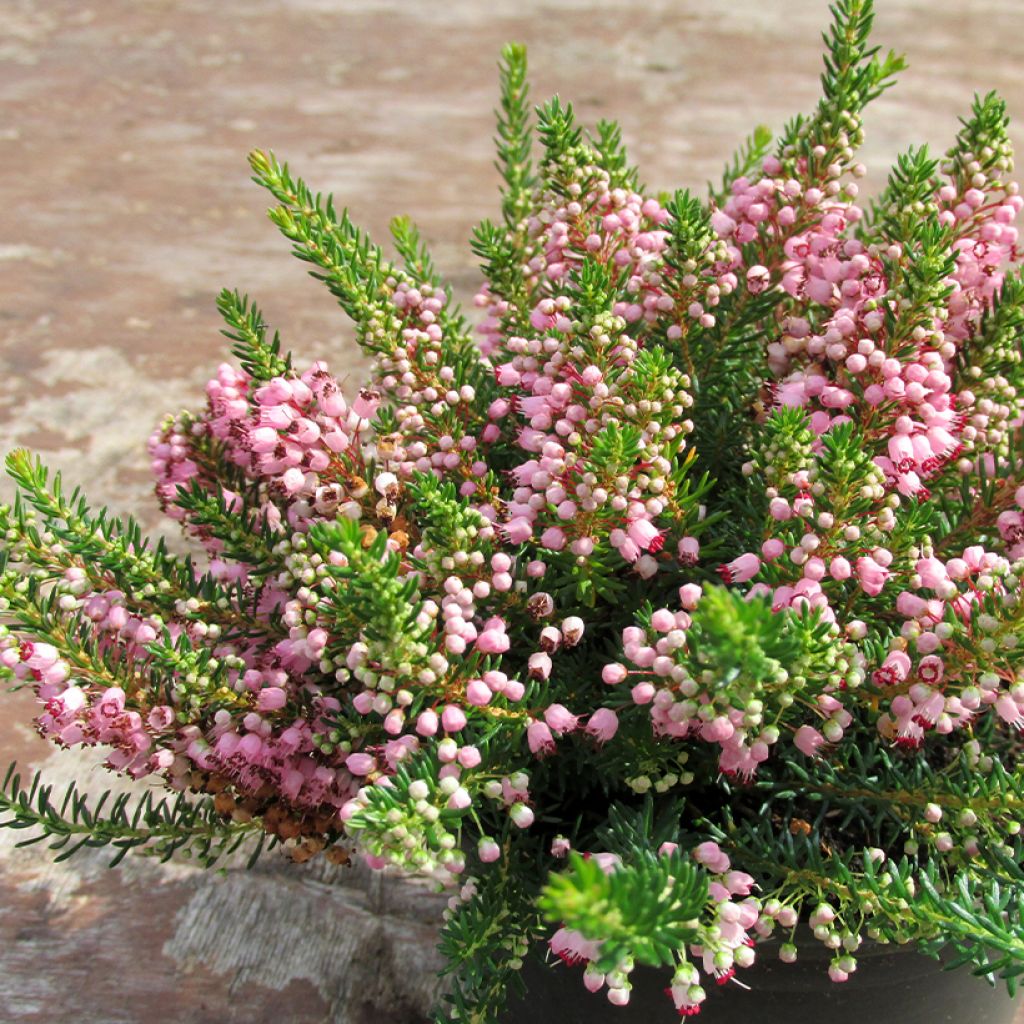

Erica vagans Pyrenees Pink
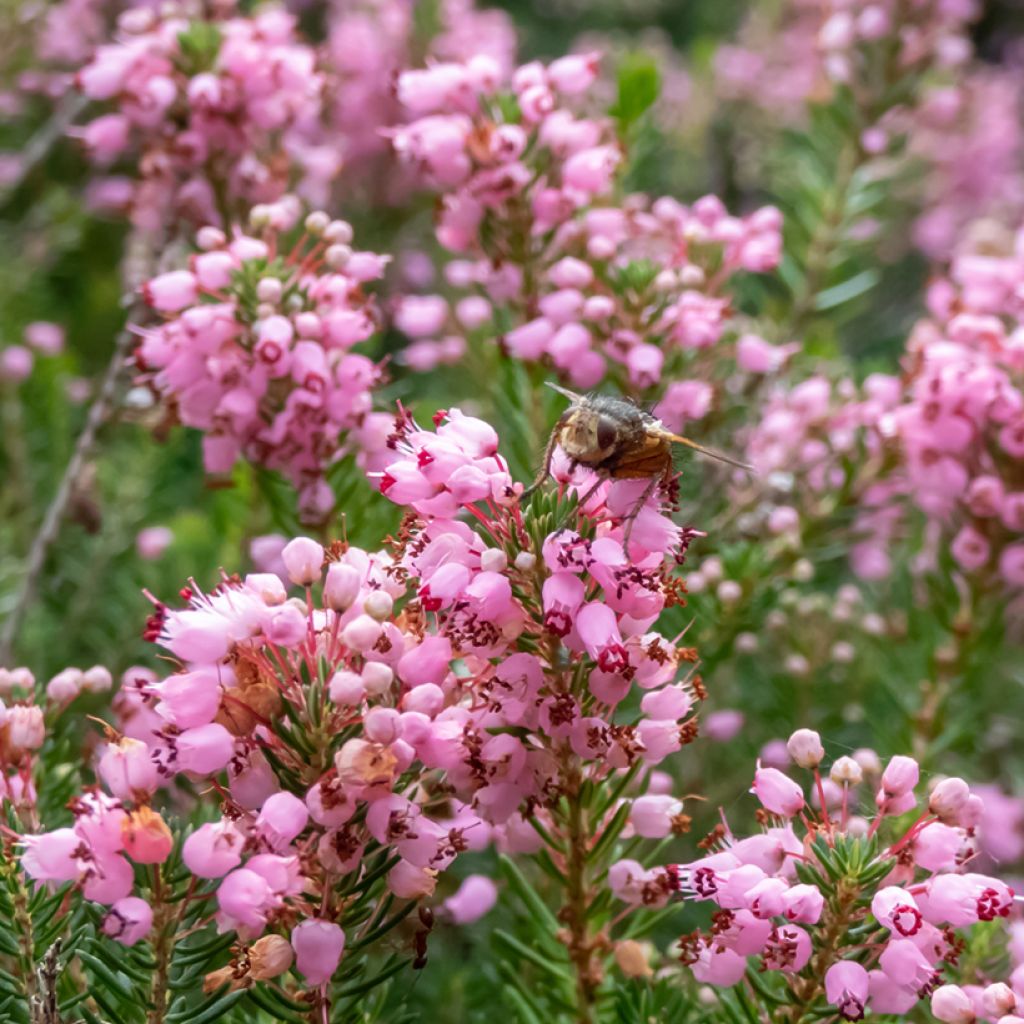

Erica vagans Pyrenees Pink
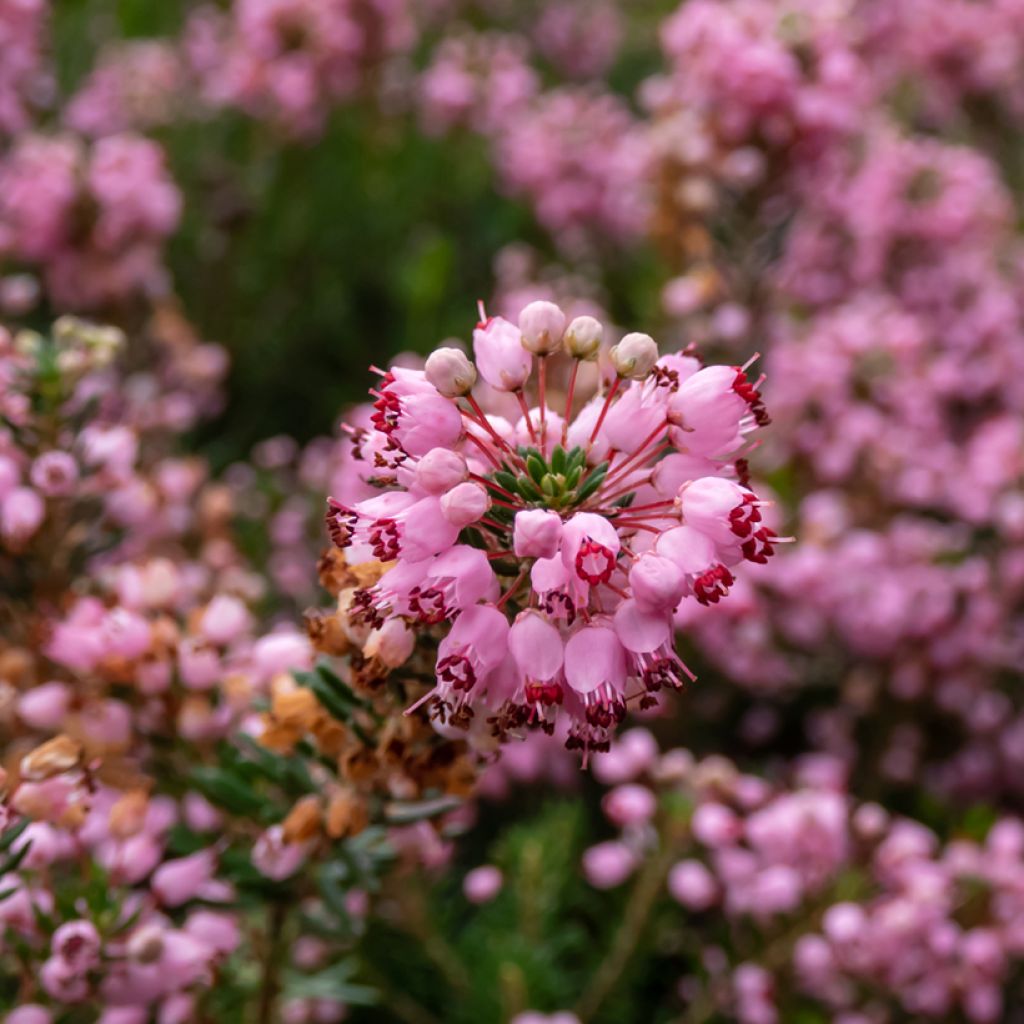

Erica vagans Pyrenees Pink
Erica vagans Pyrenees Pink
Erica vagans Pyrenees Pink
Cornish Heather
Why not try an alternative variety in stock?
View all →This plant carries a 24 months recovery warranty
More information
We guarantee the quality of our plants for a full growing cycle, and will replace at our expense any plant that fails to recover under normal climatic and planting conditions.
From €5.90 for pickup delivery and €6.90 for home delivery
Express home delivery from €8.90.
Does this plant fit my garden?
Set up your Plantfit profile →
Description
The Erica vagans 'Pyrenees Pink' is a horticultural selection likely discovered in the Pyrenees, a region where the species is also found in the wild. Known as Cornish heath, brande, or wandering heather, this variety, like all heathers, belongs to the ericaceae family. The botanical species Erica vagans is native to Western Europe, from Portugal to England, and typically grows in heathlands and open woodlands on acidic, well-drained soils, preferably sandy and poor. It is a hardy plant, capable of thrivingwas likely discovered in the Pyrenees. Indeed, the species is found in this part of our territory, known as Cornish heather, brande or wandering heather. Like all heathers, this 'Pyrenees Pink' variety belongs to the ericaceae family. The botanical species Erica vagans is present in Western Europe, from Portugal to England. It is a plant of heathlands and open woodlands that generally grows on acidic and well-drained soils, preferably sandy and poor. Hardy, it grows up to 1600 m.
The 'Pyrenees Pink' heather forms a small, low, dense bush with a wide cushion-like appearance. Eventually, the plant measures about 30 cm in height and 40-45 cm in spread. Its branches are somewhat twisted, well upright at the ends, covered in tiny linear leaves (8 to 10 mm), like non-prickly needles. This heather flowers from August to October. Its small bell-shaped flowers, measuring 3 mm in length, are whorled, grouped in small compact, elongated clusters, often terminated by leaves. They are highly visited by bees. Their colour is light pink. The stamens that protrude from the corolla are dark red. The foliage, evergreen in winter, is light and vibrant green.
The 'Pyrenees Pink' wandering heather can be planted in a pocket of compost, between rocks in a rockery, along the edge of a raised bed or alongside a path, always in light soil, preferably non-calcareous. It thrives in the sun, in the company of other heathers with concurrent or staggered flowering: Erica carnea 'Isabell', E. darleyensis 'Kramer's Rot', and Calluna vulgaris 'Winter Chocolate', for example. To add a touch of whimsy to the scene, they can be paired with some low grasses that will lighten their mass. Heathers form beautiful carpets at the base of larger heathland shrubs: mountain laurels, brooms, Chinese azaleas, etc.
While heathers, especially those of the genus Erica, are associated with the humid Atlantic heaths of the oceanic north-facing coast (Brittany, Ireland, Scotland), some heathers thrive in dry climates and on limestone soils, Mediterranean heathers. But one of the richest areas in the world for heathers is located far away, in South Africa. In the Cape region, there is a plant formation on acidic soil, equivalent to our Mediterranean scrub vegetation, called Fynbos, which includes nearly 625 heather species out of the 740 recorded worldwide.
Report an error about the product description
Erica vagans Pyrenees Pink in pictures
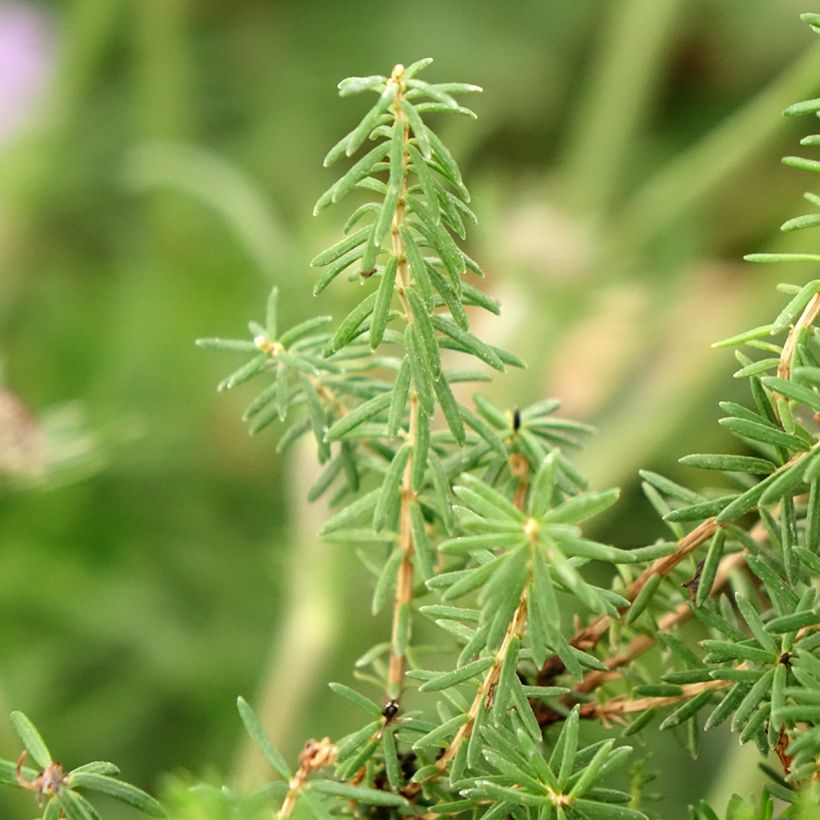

Plant habit
Flowering
Foliage
Botanical data
Erica
vagans
Pyrenees Pink
Ericaceae
Cornish Heather
Cultivar or hybrid
Other Heather
Planting and care
The 'Pyrenees Pink' heather is less demanding in terms of soil than most other varieties of wandering heathers. Nevertheless, it prefers a non-limestone, acid to neutral soil. This variety can tolerate poor terrain. It prefers a light, sandy, humus-bearing substrate, acidic, well-drained, and occasionally dry. Plant in autumn or spring without burying the collar too much. A sunny exposure will enhance the colour of its foliage and promote abundant flowering. During the first two years, carefully weed around the base. In prolonged drought, mulch around the base to maintain some freshness. During the first season after planting, never let the plants dry out. Do not use manure or artificial fertilisers; light applications of natural fertilisers such as bone meal on very poor soils can be beneficial. Prune the clumps lightly, just after flowering, from a young age, allowing the plants to remain dense while producing fresh new foliage.
Planting period
Intended location
Care
This item has not been reviewed yet - be the first to leave a review about it.
Evergreen shrubs
Haven't found what you were looking for?
Hardiness is the lowest winter temperature a plant can endure without suffering serious damage or even dying. However, hardiness is affected by location (a sheltered area, such as a patio), protection (winter cover) and soil type (hardiness is improved by well-drained soil).

Photo Sharing Terms & Conditions
In order to encourage gardeners to interact and share their experiences, Promesse de fleurs offers various media enabling content to be uploaded onto its Site - in particular via the ‘Photo sharing’ module.
The User agrees to refrain from:
- Posting any content that is illegal, prejudicial, insulting, racist, inciteful to hatred, revisionist, contrary to public decency, that infringes on privacy or on the privacy rights of third parties, in particular the publicity rights of persons and goods, intellectual property rights, or the right to privacy.
- Submitting content on behalf of a third party;
- Impersonate the identity of a third party and/or publish any personal information about a third party;
In general, the User undertakes to refrain from any unethical behaviour.
All Content (in particular text, comments, files, images, photos, videos, creative works, etc.), which may be subject to property or intellectual property rights, image or other private rights, shall remain the property of the User, subject to the limited rights granted by the terms of the licence granted by Promesse de fleurs as stated below. Users are at liberty to publish or not to publish such Content on the Site, notably via the ‘Photo Sharing’ facility, and accept that this Content shall be made public and freely accessible, notably on the Internet.
Users further acknowledge, undertake to have ,and guarantee that they hold all necessary rights and permissions to publish such material on the Site, in particular with regard to the legislation in force pertaining to any privacy, property, intellectual property, image, or contractual rights, or rights of any other nature. By publishing such Content on the Site, Users acknowledge accepting full liability as publishers of the Content within the meaning of the law, and grant Promesse de fleurs, free of charge, an inclusive, worldwide licence for the said Content for the entire duration of its publication, including all reproduction, representation, up/downloading, displaying, performing, transmission, and storage rights.
Users also grant permission for their name to be linked to the Content and accept that this link may not always be made available.
By engaging in posting material, Users consent to their Content becoming automatically accessible on the Internet, in particular on other sites and/or blogs and/or web pages of the Promesse de fleurs site, including in particular social pages and the Promesse de fleurs catalogue.
Users may secure the removal of entrusted content free of charge by issuing a simple request via our contact form.
The flowering period indicated on our website applies to countries and regions located in USDA zone 8 (France, the United Kingdom, Ireland, the Netherlands, etc.)
It will vary according to where you live:
- In zones 9 to 10 (Italy, Spain, Greece, etc.), flowering will occur about 2 to 4 weeks earlier.
- In zones 6 to 7 (Germany, Poland, Slovenia, and lower mountainous regions), flowering will be delayed by 2 to 3 weeks.
- In zone 5 (Central Europe, Scandinavia), blooming will be delayed by 3 to 5 weeks.
In temperate climates, pruning of spring-flowering shrubs (forsythia, spireas, etc.) should be done just after flowering.
Pruning of summer-flowering shrubs (Indian Lilac, Perovskia, etc.) can be done in winter or spring.
In cold regions as well as with frost-sensitive plants, avoid pruning too early when severe frosts may still occur.
The planting period indicated on our website applies to countries and regions located in USDA zone 8 (France, United Kingdom, Ireland, Netherlands).
It will vary according to where you live:
- In Mediterranean zones (Marseille, Madrid, Milan, etc.), autumn and winter are the best planting periods.
- In continental zones (Strasbourg, Munich, Vienna, etc.), delay planting by 2 to 3 weeks in spring and bring it forward by 2 to 4 weeks in autumn.
- In mountainous regions (the Alps, Pyrenees, Carpathians, etc.), it is best to plant in late spring (May-June) or late summer (August-September).
The harvesting period indicated on our website applies to countries and regions in USDA zone 8 (France, England, Ireland, the Netherlands).
In colder areas (Scandinavia, Poland, Austria...) fruit and vegetable harvests are likely to be delayed by 3-4 weeks.
In warmer areas (Italy, Spain, Greece, etc.), harvesting will probably take place earlier, depending on weather conditions.
The sowing periods indicated on our website apply to countries and regions within USDA Zone 8 (France, UK, Ireland, Netherlands).
In colder areas (Scandinavia, Poland, Austria...), delay any outdoor sowing by 3-4 weeks, or sow under glass.
In warmer climes (Italy, Spain, Greece, etc.), bring outdoor sowing forward by a few weeks.

































